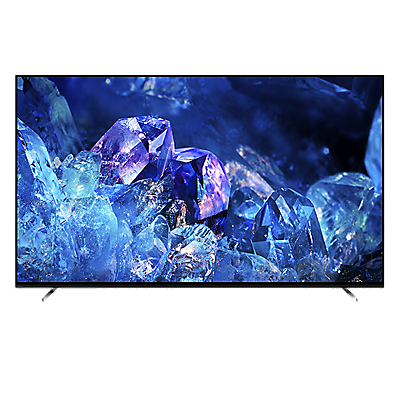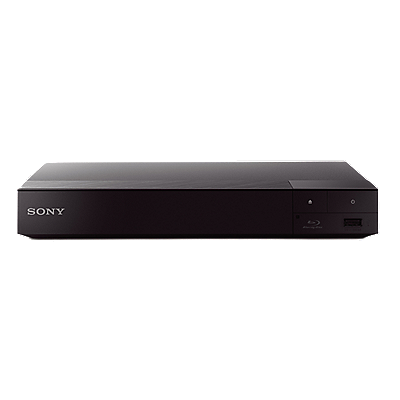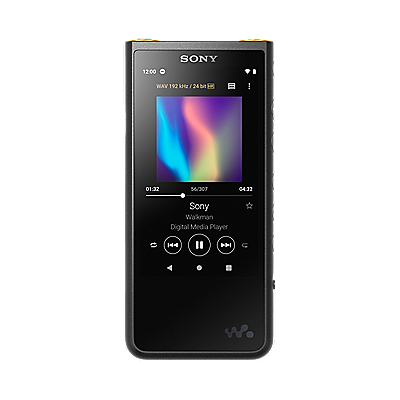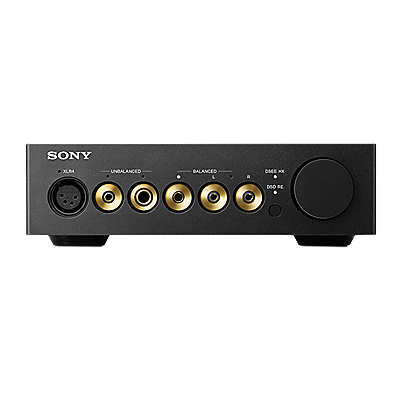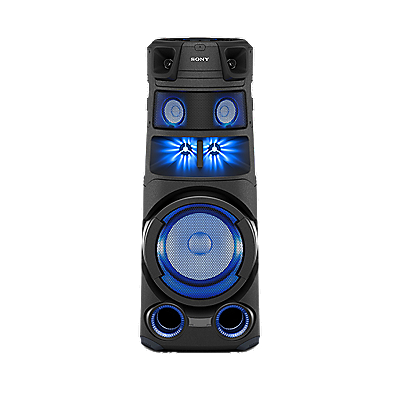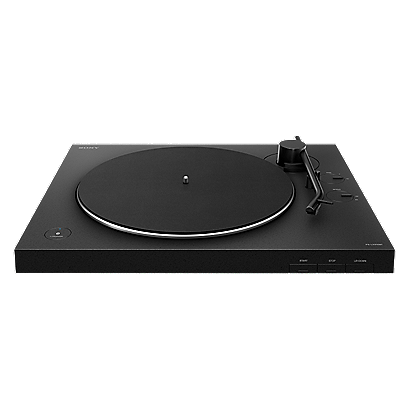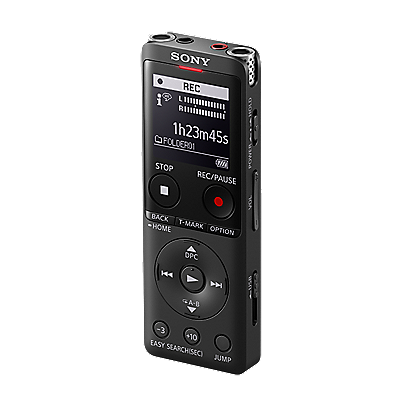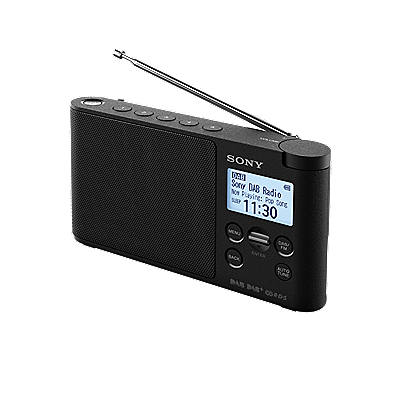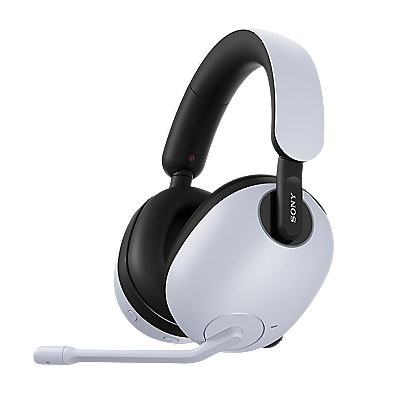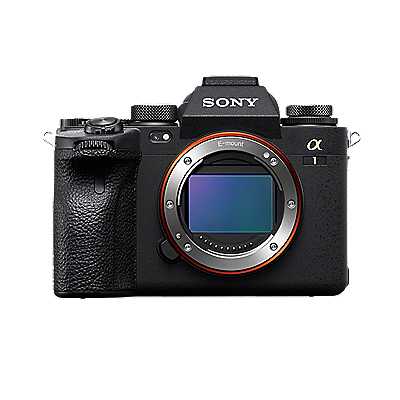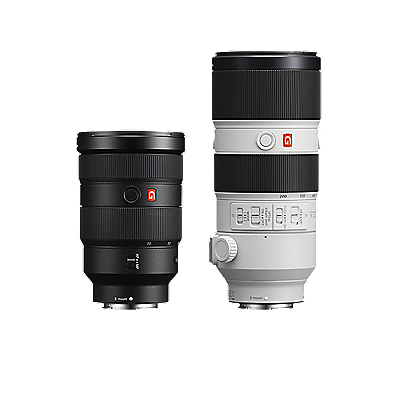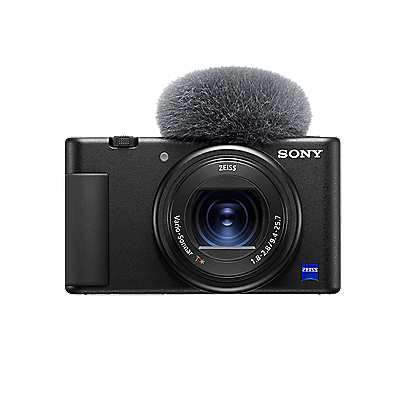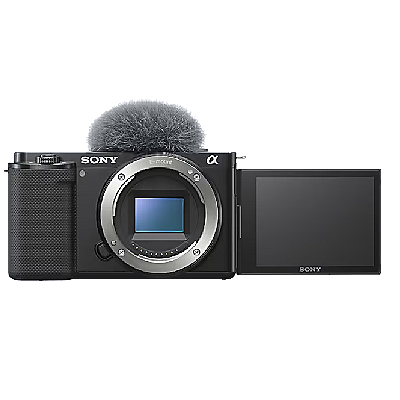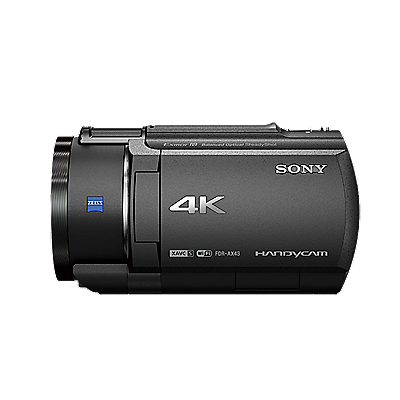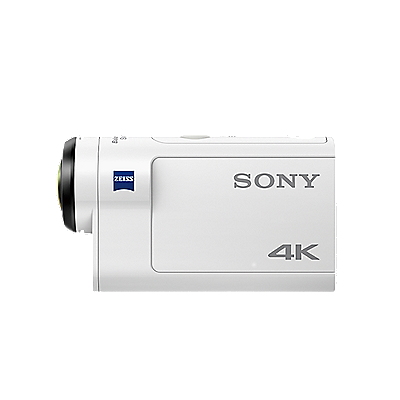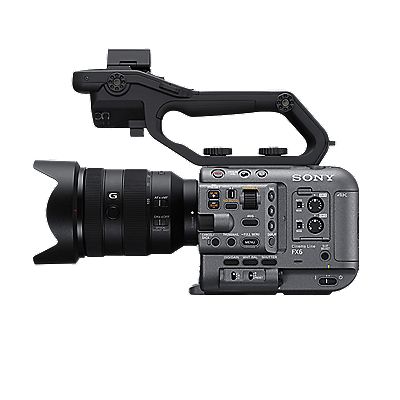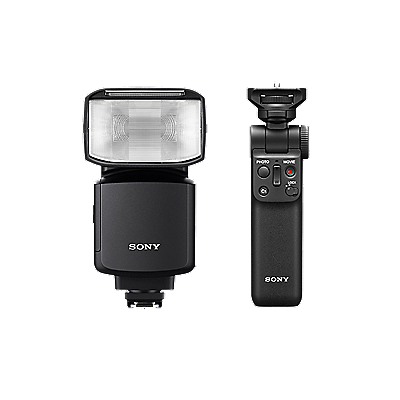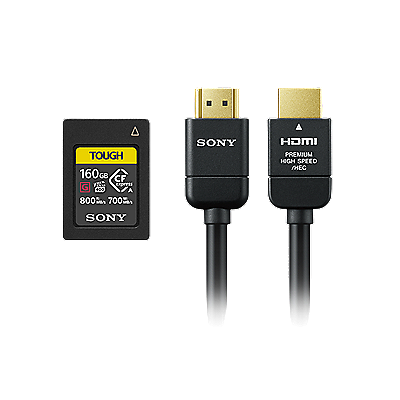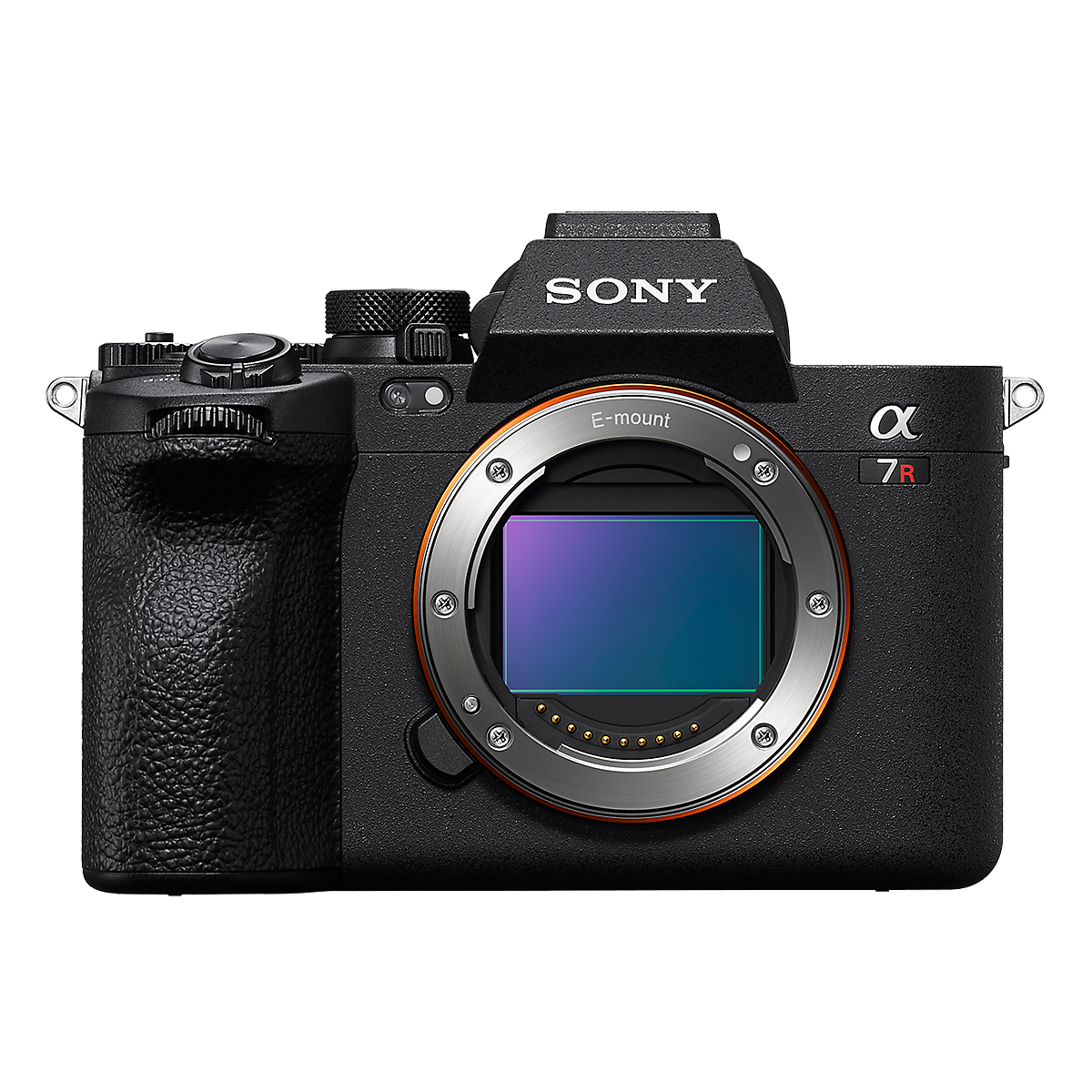Interchangeable-lens Cameras
Interchangeable-lens Cameras
Interchangeable-lens Cameras
ILCE-7RM5
Feature lists


A newly developed AI processing unit
State-of-the-art AI processing with deep learning uses detailed information about human forms and poses to dramatically improve the camera’s subject recognition accuracy and make full use of its potential resolution. AI subject recognition has been expanded to include a number of new subject types, including vehicles and insects.

A new level of resolution
This newest generation of the α7R series continues the pursuit of high image resolution, delivering the highest resolution at low sensitivity in the series thus far. The 35mm full-frame back-illuminated Exmor R™ CMOS image sensor with 61.0 million0 pixels and the latest BIONZ XR™ image processing engine are used to their fullest potential to deliver extraordinary resolution and fine subject detail.

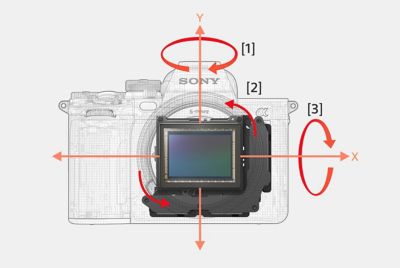
Advanced optical 5-axis image stabilisation
The entire image stabilisation system has been updated with a high-precision image stabilisation unit, advanced gyro sensors, and optimised image stabilisation algorithms. Camera shake is precisely detected and corrected by the image stabilisation unit, significantly expanding the range of shooting situations in which reliable stabilisation can be achieved. The body alone provides 8-step stabilisation0 for the first time in the α series. [1] Yaw [2] Roll [3] Pitch


Pixel Shift Multi Shooting responds to changing conditions
Pixel Shift Multi Shooting takes advantage of precision in-body image stabilisation system control, capturing up to 16 pixel-shifted shots to be later composited on a computer to achieve outstanding resolution in a single image0. With the latest version of Imaging Edge Desktop™ software, small pixel-level movements are automatically detected and corrected1.

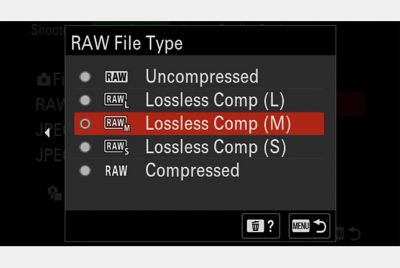
Selectable RAW image sizes and quality
Lossless RAW image compression allows more high-quality images to be shot in continuous bursts, with a choice of three lossless-compression image sizes. The M and S sizes have the same number of pixels (26M/15M) whether shot in full-frame or APS-C mode, making it possible to seamlessly switch between full frame and APS-C angles of view within the same scene while maintaining the same image resolution.

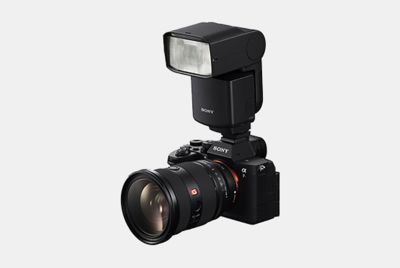
Precise, versatile external flash control
When a compatible Sony external flash unit0 is used with the camera's auto white balance function, the white balance is adjusted to produce natural skin tones on faces based on the balance between the flash output and ambient light. Flash control also works with face detection to deliver the optimum flash level for the subject.

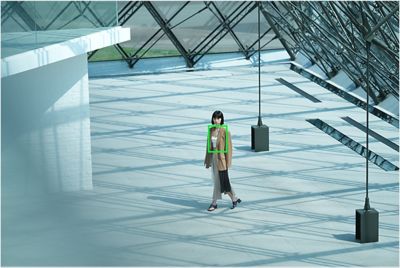
Real-time Recognition AF for human
With its innovative AI processing unit, the α7R V can use Real-time Recognition AF to accurately recognise movements of people, providing an approximately 60% improvement in human eye recognition0 compared to the α7R IV. Human pose estimation technology uses learned human forms and poses to recognise not just eyes but body and head position with high precision, making it possible to lock onto and track a subject facing away from the camera or wearing a mask.


Faster, more precise AF system
The immense processing power of the new BIONZ XR engine and updated algorithms achieve notably improved AF performance, drawing on the huge amount of data generated by the image sensor and the wide-area, high-density AF system. Up to 693 phase detection points cover approximately 79% of the image area. The wider AF area also allows greater framing freedom, for example when shooting portraits in vertical orientation. High AF precision is achieved down to light levels as low as EV -4.0 in AF-S mode (ISO 100 equivalent, F2.0 lens).


Real-time Recognition AF for wider range of subjects
In addition to humans, animals, and birds, the camera can now recognise insects, cars, trains and airplanes, providing even greater flexibility and reliability when shooting both stills and movies. More types of birds are recognised, and animal recognition has been expanded to cover some grazing and small animals in addition to dogs, cats, and similarly featured animals, with up to 40% greater precision.

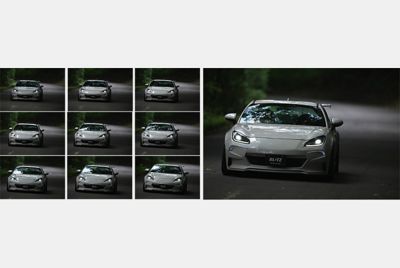
Continuous shooting
Even with the high resolution of the α7R V, continuous shooting at up to 10 fps with full AF/AE tracking is possible with the mechanical shutter. This level of speed and tracking reliability makes it easy to capture the most photogenic moments and expressions with moving subjects. Up to 583 compressed RAW images can be continuously shot at 10 fps.


Full-time DMF
When shooting stills with AF-C or AF-S autofocus, the lens’s focus ring can be rotated to switch to manual focus mode at any time. This makes it easy to return focus to the original subject if AF switches to a different subject, for example, by simply rotating the focus ring.


Focus bracketing0
The α7R V will automatically shoot up to 299 images with sequentially shifted focus points using intervals and a sequence that you specify. The best image can then be selected from the sequence, or a computer application can combine the focus bracketed images to create focus-stacked composites with deeply synthesised depth of field that take advantage of the camera's high resolution.


Full-pixel readout for 8K movies with incredible resolution
The XAVC HS format enables in-camera recording of high-resolution 8K 24p (25p)0 movies with efficient HEVC/H.265 compression, bringing out the very best in Sony's lenses and taking full advantage of the potential resolution provided by the sensor and full-pixel readout. Even the finest subject details are faithfully captured. The ability to reframe 8K footage in post-production for 4K delivery affords invaluable editing flexibility as well1.


Outstanding 4K movie recording
Full-frame and Super 35mm formats can be selected for 4K movie recording, as can 4K 60p (50p)0 recording. Full pixel readout in the Super 35mm mode without the need for pixel binning makes 2.6x oversampling possible for 4K movies. The XAVC S-I (All-Intra), or the XAVC HS format is supported, as is 10-bit 4:2:2 colour sampling.

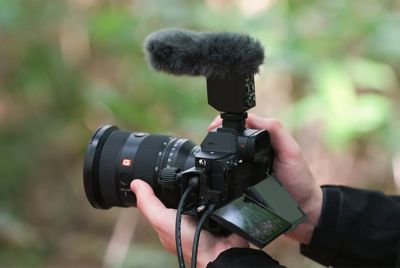
16-bit RAW output for enhanced editing flexibility0
In response to the increasing demand for RAW recording capability, the α7R V provides 16-bit RAW output to an external recorder0 via an HDMI cable. Full-frame 3848 x 2168 (16:9 aspect ratio) output is available with a choice of frame rates1. It is also possible to output RAW via HDMI while recording XAVC HS 4K, XAVC S 4K, or XAVC S-I 4K to internal card media. Proxy recording is also available.


Real-time Tracking for movies
Thanks to substantial improvements in subject recognition, the camera can provide more reliable Real-time Tracking, keeping track of specified subjects with precise focus, including focus on the subject's eyes. Subject recognition is now enabled for movie shoots as well as still-image photography, for fast, stable focus when shooting. Even with subject recognition OFF, touch operation allows subjects to be acquired and tracked based on colour, pattern (luminance) and distance (depth).


S-Log3 gamma curve with 14+ stops of latitude
The S-Log3 gamma curve emphasises gradation characteristics from shadows to mid-gray (18% gray), achieving up to 14+ stops of latitude. Three colour gamut settings are provided: S-Gamut, S-Gamut3, and S-Gamut3.Cine. These advanced settings make it easy to match footage shot on the α7R V with footage shot on VENICE and VENICE 2 digital cinema cameras or FX series cameras equipped with S-Log3 gamma curve settings, for smooth, efficient editing.


Active Mode image stabilisation for handheld movie shooting
Active Mode0 provides strong image stabilisation for handheld movie shooting. In addition to in-body stabilisation, compatible lenses with their own built-in image stabilisation coordinate with the camera body for highly effective control, allowing even handheld telephoto shots.

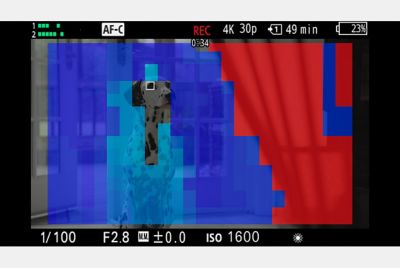
Designed for smooth movie making
Focus Map0 makes it easier to visualise depth of field when shooting movies. In addition, a bold, clearly visible red frame appears on screen when recording is in progress. Shot Marks can be added to recorded movie clips in-camera to identify particular scenes.

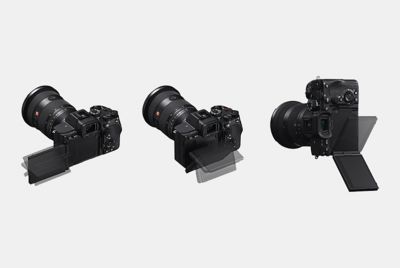
Unique 4-axis LCD monitor for enhanced shooting flexibility
Sony's newly developed 4-axis multi-angle monitor combines the utility of a conventional tilting monitor with side-opening vari-angle flexibility. It allows greater flexibility in shooting by providing unrestricted angle adjustment in both horizontal and vertical orientations0.

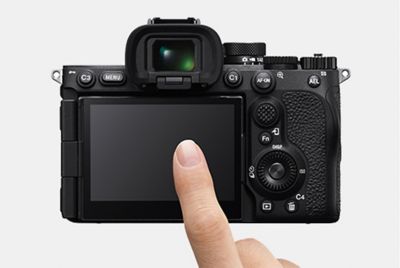
Touch operations when shooting or during playback
The Touch Focus, Touch Tracking and Touch Shutter functions can be quickly activated or deactivated by touching an icon on the shooting display. During playback images can be selected by touch, and pinch-out/pinch-in gestures can be used to enlarge or reduce the selected image. Touch sensitivity can be adjusted for optimum control response.

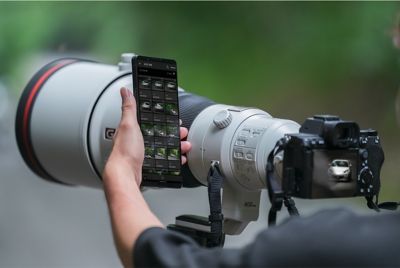
Fast Wi-Fi for PC tethering, FTP and smartphone transfers
Built-in Wi-Fi (IEEE 802.11a/b/g/n/ac) allows communication on the 2.4 GHz and 5 GHz0 bands. 802.11ac provides 2x2 MIMO support for fast and stable data transfer and reliable communication.

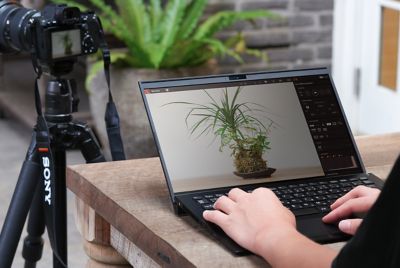
PC Remote shooting via wireless LAN (Wi-Fi)
The camera can be connected to a computer via Wi-Fi for wireless PC Remote (tethered) shooting using the “Remote” function of Sony’s latest Imaging Edge Desktop application, giving the user greater freedom of movement on location or in the studio. 2.4 GHz or 5GHz0 Wi-Fi bands can be selected as required. In addition to wirelessly connecting the camera directly to the PC, the ability to connect via a wireless access point adds the flexibility needed to work in a variety of network environments.

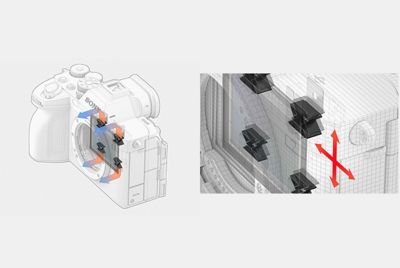
Effective heat dissipation for extended recording times
Heat generated by the image sensor, image processor, and AI processing unit is effectively dissipated to prevent overheating. One element of this is the graphite material formed into a unique Σ (sigma) shape and built into the image stabilisation unit. This structure allows the image sensor, a major source of heat inside the body, to move freely during stabilisation while effectively conducting heat away, achieving five times better heat dissipation.

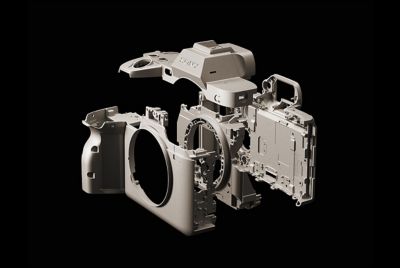
Durable magnesium alloy chassis, reliable mechanical shutter
A lightweight, high-rigidity magnesium alloy is used for the top cover, front cover, internal frame, and rear cover, with durable construction that keeps the camera operating smoothly in hard-working environments. A shutter unit with a fast-response motor minimises mechanical shutter vibration that can cause blur, while allowing high-speed continuous shooting at up to 10 fps. The shutter is quiet and has been tested for durability in excess of 500 000 shutter cycles.

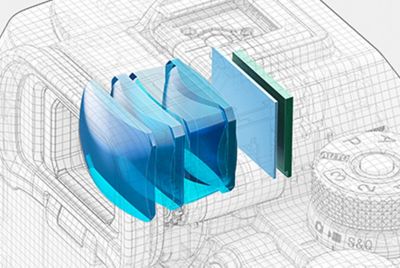
QXGA viewfinder with the highest resolution in its class
A 9.44 million-dot OLED electronic viewfinder delivers the highest resolution, with approximately 1.6 times the resolution of previous UXGA Tru-Finder™ viewfinders. It also features significantly improved optics and mechanical design, achieving world-record 0.90x viewfinder magnification, and a 41° diagonal FOV (approx. 43° for the entire display area).

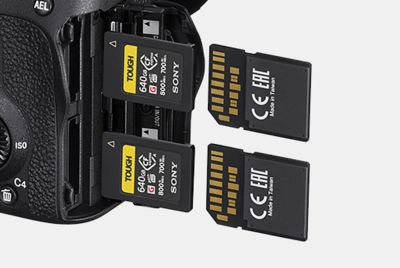
Two CFexpress Type A compatible media slots
The α7R V has two media slots that support CFexpress Type A memory cards as well as UHS-I and UHS-II SDXC/SDHC, for high capacity and fast read/write speeds. The same data can be simultaneously recorded to both slots for backup, or the user can choose to separate stills/movies or JPEG (HEIF)/RAW formats. There is also a relay mode in which still image or movie recording will automatically switch to the second media card.

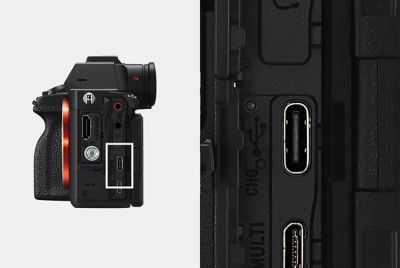
USB PD (Power Delivery) supports fast charging
The α7R V supports USB PD (Power Delivery), allowing higher power to be supplied from an external source. A USB charger or mobile battery that supports USB PD can be connected to the camera's USB Type-C® port, supplying power or charging the internal battery at three to four times the rate of the previous model.

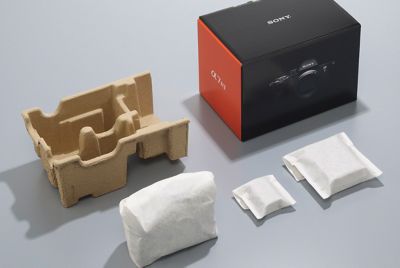
Recycled materials
Sony is working towards the use of non-plastic packaging materials, with plant-based non-woven fabrics as well as recyclable materials. As for the camera itself, no non-recyclable resources are used in our SORPLAS™ material1, which is repeatedly recyclable, durable, and high in quality. Recyclable plastics are also used as much as possible1, reducing stress on the environment without compromising performance or functionality in any way.
FEATURES
-
ILCE-7RM5
